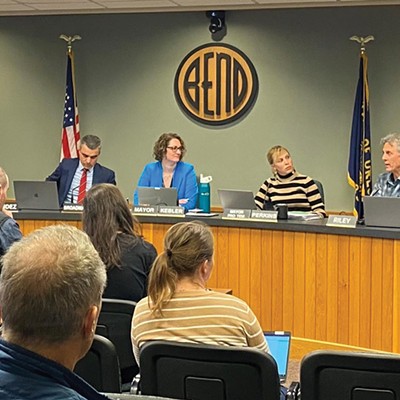In early November, Rep. Cliff Bentz (R-OR2) took to the floor of U.S. House of Representatives to deliver a 4-minute speech opposing a Senate bill that would turn about 1.1 million acres of the Owyhee Canyonlands in southeastern Oregon into wilderness.
Over the past several years, Sen. Ron Wyden (D-OR), along with Sen. Jeff Merkley (D-OR), has worked with a vast group of ranchers, hunters and environmental groups, including the Oregon Natural Desert Association, to establish a compromise for protection, and also use, of the area. Under the tenets of Wyden's bill, Senate Bill 1890 — the Malheur Community Empowerment for the Owyhee Act — livestock grazing would be allowed, range improvements would be undertaken, federal protections for the Owyhee River would be expanded, and, perhaps most importantly for the individuals and tribes who live and work in the area, a local council would oversee all of it – ensuring the buzzword of "local control" is heeded.
But that bill, representing years of work and compromise among stakeholders in the area, didn't seem to be enough for Bentz. Rather than working to understand the compromises made by the various stakeholder groups under SB 1890 – or perhaps even bringing it up in his rare meetings with Wyden — Bentz instead introduced House Resolution 4821 into the Department of the Interior, Environment and Related Agencies Appropriations Act – a resolution that bars the use of funds to establish any national monument in Malheur County. That bill recently passed in the House, but has yet to be approved by the Senate. Bentz says he also plans to introduce more legislation that pertains to the Owyhee.
The thing is, no one is yet moving forward on the establishment of a national monument in Malheur County. What Wyden and the locals who are part of the Senate proposal are after, rather, is a wilderness protection bill that stops short of designating the area a national monument.
So while Bentz may win points among some who fuzzily oppose the restrictions of a monument out of pocket, the legislation afoot by Wyden and company is an effort at a compromise, rather than the "nuclear option" of a presidential monument designation, as allowed under the Antiquities Act. Some still hope the Antiquities Act can be used by President Biden if this Senate bill fails, but for the moment, the hope is for an action by Congress instead.
When he talked to the Malheur Enterprise about his actions in regard to the Owyhee, Bentz told the newspaper that he'd based his speech and his House resolution on information he'd gleaned in 2015 – when a proposal to designate 2.5 million acres of the Owyhee as a national monument failed. But that's old information. The current proposal is for 1.1 million acres, and if everyone plays ball, wouldn't involve a national monument designation. What a gaffe on Bentz's part.
Rural individuals and tribes have often complained that the feds don't listen to them. They contend that they, the people who live in an area, are the best experts about the use of the land. These are the very arguments that led to the creation of Wyden's bill.
In this case, it seems that the "fed" who isn't listening is Bentz, not the senators and stakeholders who worked to craft a compromise bill for the Owyhee.





















